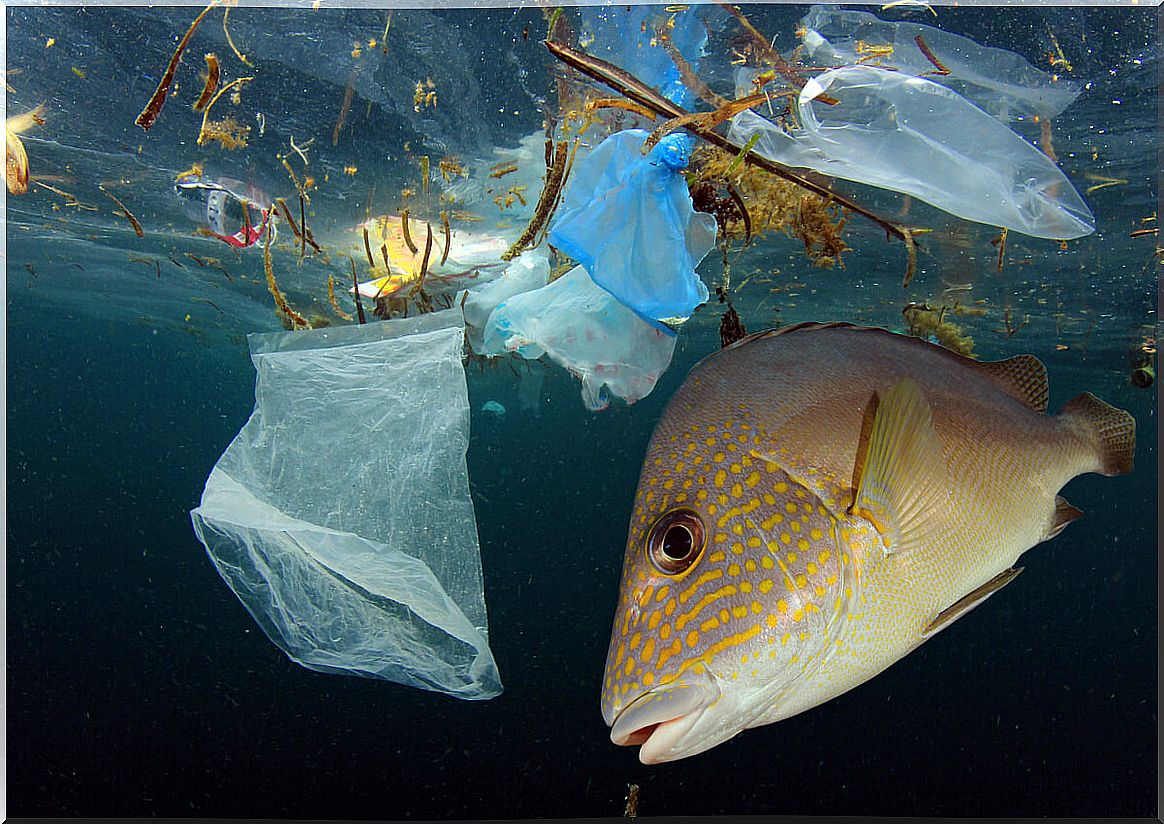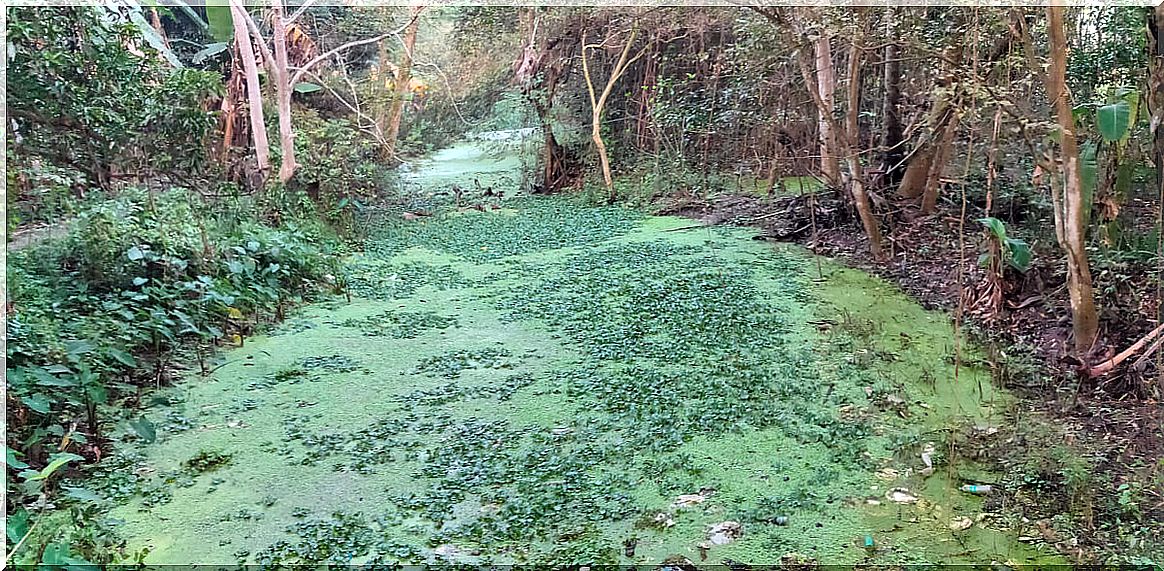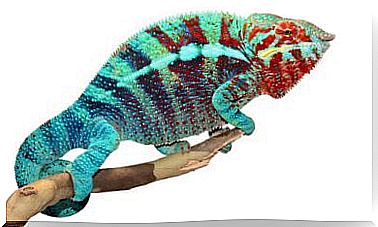How Does Water Pollution Affect Fish?

The aquatic ecosystems of the planet are seriously affected by water pollution from human activity. Unfortunately, the biodiversity of fish and other species decreases as a result of this phenomenon.
Heavy metals, microplastics, physical-chemical changes in water and eutrophication of lakes and rivers directly influence the diversity, abundance and life cycle of marine and freshwater fish. Discover some of the biggest problems resulting from water pollution in the following lines.
Microplastics in water
Human beings are the only producer of plastics and, therefore, their presence on land or in water is a direct consequence of our activity. Despite the few efforts to reduce their consumption, we have been aware of the presence of microplastics in the ocean since the 1960s.
Microplastics are very small pieces of inorganic material that pollute the environment. The National Oceanic and Atmospheric Administration (NOAA) considers this term to describe plastics less than five millimeters in diameter.
These elements can have multiple origins: tires, cleaning products, cosmetics, clothing, everyday plastic waste — bottles, bags, containers and straws—, industrial processes, etc. It is estimated that between 2% and 5% of all manufactured plastics end up in the oceans.
Types of microplastics
Microplastics are divided into different categories. We summarize them below:
- Primary : they are the plastic particles released directly into the environment. For example, toothpastes, gels and other cosmetic products through sewage.
- Secondary or nanoplastics : they originate from the degradation of large plastic objects, such as bags, bottles or fishing nets. They make up the highest percentage of microplastics in the ocean.
Plastics do not degrade, but rather are fragmented into smaller parts and are ingested by all kinds of ocean and freshwater animals : fish, crustaceans and mollusks. In addition, they end up staying in the tissues of these animals and many of them reach us through the food chain.
The levels of microplastics in a marine species are not only due to direct consumption of these, as they also increase due to the ingestion of other species that have eaten microplastics at some point in their life cycle.
Water pollution changes fish behavior
Rivers and seas are reservoirs for large amounts of wastewater discharges, which are produced by industrial and mining activity, and have a great impact on water and its inhabitants.
So much so, that changes in the behavior of fish in the River Thames have been observed due to the discharge of residues – such as cocaine or caffeine – down the city’s drains.
The drug, which reaches the fish through the remains of urine from users, causes the same effects of euphoria and hyperactivity that people experience. Investigations under experimental conditions replicated in a laboratory produce the same results in animals.
These substances accumulate in the brain, muscle, gills and skin and generate a change in the behavior of the fish that can affect their survival, especially in relation to the behavior of flight from predators.
Eutrophication of water
Eutrophication is an excess of nutrients in the water due to the accumulation of organic waste. These nutrients – mainly made up of nitrogen and phosphorous – cause the uncontrolled proliferation of algae that end up consuming the oxygen in the water. This usually occurs in systems where there is little renewal of the water, such as lakes and reservoirs.
Fertilizers, livestock excrement, industrial activity, emissions of nitrogen oxides and sulfur that precipitate from the atmosphere in the form of rain or residues from forestry are some of the causes of eutrophication of waters.
The algae explosion that accompanies the first phase of eutrophication causes the waters to become cloudy, preventing light from penetrating to the bottom of the water body.
Plants that are in lower strata cannot photosynthesize and renew the oxygen in these layers and end up dying, as well as fish and the rest of the fauna. Many of the massive fish kills have their origin in the eutrophication of the waters.
The result of this chain reaction is cloudy, dense-looking water with a large amount of biomass. This might seem positive at first, but it causes a loss of water quality and a decrease in the biodiversity of species in the ecosystem.

An action of human origin
As we have seen in these lines, both a lack of life and an excess of it can be detrimental to an aquatic ecosystem. In any case, the presence of microplastics in the seas is the most immediate and worrying enemy that we must fight.
Pollution is destroying marine and freshwater life and, of course, it is in our hands to change the course of things. In reducing waste is the key to the persistence of the planet.








